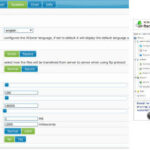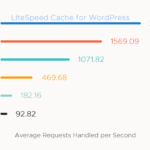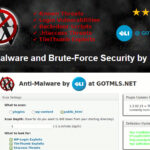Your WordPress website is like your digital home. Keeping it secure is a must. With cyberattacks on the rise, protecting your site isn’t optional—it’s survival. Here are 5 simple steps to secure your WordPress website. These tips are beginner-friendly, practical, and essential.
With a combination of affordable pricing, top-notch performance, and advanced security features, they offer an excellent hosting experience that is hard to beat.
1. Keep Everything Updated
Updates aren’t just there to annoy you. They patch vulnerabilities hackers love to exploit. Outdated plugins, themes, and WordPress core files are a hacker’s dream.
How to Update
- Log in to your WordPress dashboard.
- Go to Updates under Dashboard.
- Update all available plugins, themes, and WordPress itself.
Quick Tips:
- Set up automatic updates for minor releases.
- Always test major updates on a staging site first.
- Delete unused plugins and themes to reduce risks.
Why it matters: Over 50% of hacked WordPress sites are due to outdated components.

2. Use Strong Passwords and Enable 2FA
Passwords like “password123” won’t cut it. Hackers use brute-force tools to crack weak passwords.
How to Create Strong Passwords:
- Use a mix of uppercase, lowercase, numbers, and symbols.
- Make it at least 12 characters long.
- Use a password manager like LastPass or 1Password.
Adding two-factor authentication (2FA) doubles the protection. Even if someone gets your password, they’ll need another code to access your site.
How to Set Up 2FA:
- Install a plugin like Wordfence or Google Authenticator.
- Follow the plugin setup to enable 2FA for admin accounts.
3. Install a Security Plugin
A good security plugin acts like your website’s bodyguard. It blocks malware, stops unauthorized access, and scans for vulnerabilities.
Best Security Plugins for WordPress:
- Wordfence: Firewall and malware scanner.
- Sucuri Security: Offers malware cleanup if your site gets hacked.
- iThemes Security: Excellent for brute-force protection.
What to Look For:
- Firewall protection.
- Malware scanning.
- Real-time activity monitoring.
Using a security plugin reduces the risk of getting hacked by over 70%.
4. Backup Your Website Regularly
Mistakes happen. So do hacks. A backup is your safety net. It saves your data and gets your site back online quickly.
How to Backup:
- Install a backup plugin like UpdraftPlus, BackupBuddy, or BlogVault.
- Set up daily or weekly automatic backups.
- Save backups to cloud storage like Google Drive, Dropbox, or an external hard drive.
Pro Tip: Always keep at least three recent backups in different locations.
5. Limit Login Attempts and Use SSL
Most attacks involve trying different password combinations until one works. Limiting login attempts prevents this.
How to Limit Logins:
- Use a plugin like Limit Login Attempts Reloaded.
- Set a maximum of three failed attempts before locking out the user.
SSL (Secure Socket Layer) is equally important. It encrypts the data transferred between your site and visitors.
How to Add SSL:
- Many hosts offer free SSL certificates via Let’s Encrypt.
- Once enabled, update your site URL to start with “https://”.
Search engines like Google favor HTTPS sites, so SSL boosts your SEO too.
Extra Safety Tips to Secure Your WordPress Website
- Disable File Editing: Prevent unauthorized changes by adding this to your
wp-config.phpfile:
php
define(‘DISALLOW_FILE_EDIT’, true);
- Change Default Admin Username: Avoid using “admin” as your username. Choose something unique.
- Conduct Regular Security Audits: Tools like WPScan or professional services can identify vulnerabilities you might miss.
FAQs: People Also Ask
Q1: How often should I back up my WordPress site?
You should back up daily if your site changes frequently. For less active sites, weekly backups are fine.
Q2: Is a free SSL certificate enough for my site?
Yes, for most small to medium sites, free SSL from Let’s Encrypt is sufficient. Large e-commerce sites may need advanced certificates.
Q3: Can I secure my site without a plugin?
Yes, but it’s harder. Plugins simplify tasks like monitoring and setting up firewalls.
Q4: Why do I need 2FA?
Passwords can be stolen. 2FA ensures only authorized users log in, even if passwords are compromised.
Why Securing Your Site Matters
Every day, over 90,000 attacks target WordPress sites. A hacked site can lead to data theft, revenue loss, or a damaged reputation. Investing a little time now can save a lot of trouble later.
Follow these five steps and rest easy knowing your WordPress site is secure.
Now loading...





